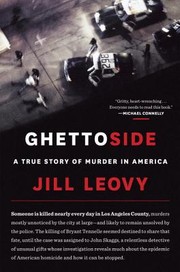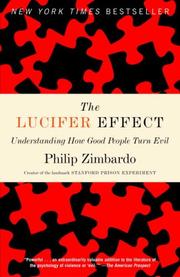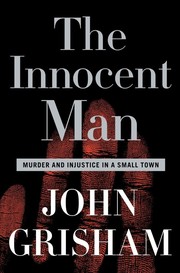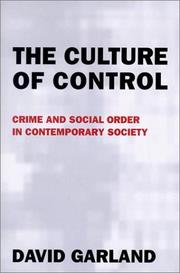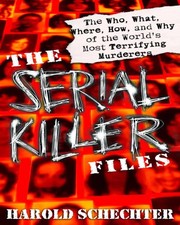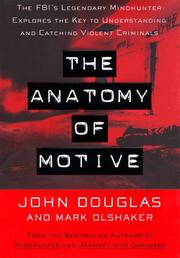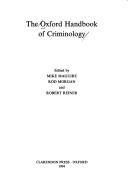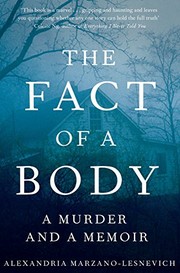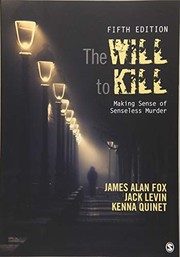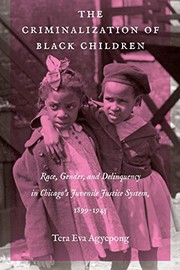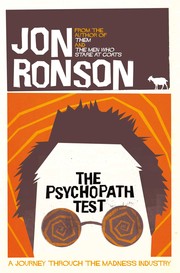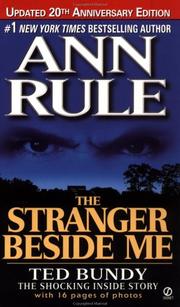Are you fascinated by the study of crime and its causes? Whether you’re a student, a professional in the criminal justice field, or just a curious reader, finding the right book on criminology can deepen your understanding of the subject. In this article, we’ve compiled a list of the 20 best criminology books that cover a range of topics, from criminal behavior to the criminal justice system. Get ready to explore the fascinating world of criminology through these insightful and thought-provoking reads!
Contents
- 1 20 Best Books About Criminology
- 2 The Anatomy of Violence: The Biological Roots of Crime
- 3 The New Jim Crow: Mass Incarceration in the Age of Colorblindness
- 4 Ghettoside: A True Story of Murder in America
- 5 The Lucifer Effect: Understanding How Good People Turn Evil
- 6 The Innocent Man: Murder and Injustice in a Small Town
- 7 The Culture of Control: Crime and Social Order in Contemporary Society
- 8 The Serial Killer Files: The Who, What, Where, How, and Why of the World’s Most Terrifying Murderers
- 9 The Condemnation of Blackness: Race, Crime, and the Making of Modern Urban America
- 10 The Anatomy of Motive: The FBI’s Legendary Mindhunter Explores the Key to Understanding and Catching Violent Criminals
- 11 The Oxford Handbook of Criminology
- 12 The Criminal Brain: Understanding Biological Theories of Crime
- 13 The Fact of a Body: A Murder and a Memoir
- 14 The Will to Kill: Making Sense of Senseless Murder
- 15 The Cyber Effect: A Pioneering Cyberpsychologist Explains How Human Behavior Changes Online
- 16 The Criminalization of Black Children: Race, Gender, and Delinquency in Chicago’s Juvenile Justice System, 1899-1945
- 17 The Anatomy of Motive: The FBI’s Legendary Mindhunter Explores the Key to Understanding and Catching Violent Criminals
- 18 Criminal Profiling: An Introduction to Behavioral Evidence Analysis
- 19 The Psychopath Test: A Journey Through the Madness Industry
- 20 Serial Killers: The Method and Madness of Monsters
- 21 The Stranger Beside Me: The Shocking Inside Story of Serial Killer Ted Bundy
- 22 Conclusion
- 23
- 24 Family Relationships Books: A Curated 2024 Updated List
- 25 Unveiling the Best Oppression Books in this 2024 Update
- 26 Fdr Books: 2024's Collection of 20 Must-Reads
20 Best Books About Criminology
The Anatomy of Violence: The Biological Roots of Crime
by Adrian Raine
The Anatomy of Violence: The Biological Roots of Crime by Adrian Raine is a groundbreaking book on criminology that delves into the biological factors that contribute to criminal behavior. Raine, a leading expert in the field, explores the role of genetics, brain abnormalities, and environmental influences in shaping criminal tendencies. Through compelling case studies and cutting-edge research, he offers a fascinating look at the complex interplay between biology and behavior, challenging traditional perspectives on crime and punishment. This book about criminology provides valuable insights for anyone interested in understanding the roots of criminal behavior and offers potential avenues for intervention and prevention. With its accessible writing style and thought-provoking content, The Anatomy of Violence is a must-read for students, professionals, and anyone intrigued by the mysteries of human behavior.
The New Jim Crow: Mass Incarceration in the Age of Colorblindness
by Michelle Alexander
The New Jim Crow: Mass Incarceration in the Age of Colorblindness by Michelle Alexander is a groundbreaking book about criminology that explores the racial disparities within the criminal justice system. Alexander argues that the system of mass incarceration in the United States has effectively created a new form of racial caste system, perpetuating the oppression of African American communities. She delves into the history of racial control in America, drawing parallels between the current system of mass incarceration and the Jim Crow laws of the past. Through meticulous research and compelling analysis, Alexander shines a light on the devastating impact of these policies on communities of color. This book on criminology challenges the notion of a colorblind society and calls for a reevaluation of the criminal justice system to address the systemic inequalities that perpetuate racial oppression.
Ghettoside: A True Story of Murder in America
by Jill Leovy
Ghettoside: A True Story of Murder in America by Jill Leovy is a riveting book on criminology that takes readers deep into the heart of the American justice system. Leovy, a journalist, explores the epidemic of murder in Los Angeles and the devastating impact it has on the city’s communities. Through the lens of a single murder case, she delves into the complexities of policing, race, and the pursuit of justice in America. With meticulous research and compelling storytelling, Leovy sheds light on the challenges faced by law enforcement and the families affected by violence. This criminology book is a powerful examination of the social and systemic issues that contribute to crime and the struggle for accountability. Ghettoside is a thought-provoking and important read for anyone interested in understanding the realities of crime in America.
The Lucifer Effect: Understanding How Good People Turn Evil
by Philip Zimbardo
The Lucifer Effect: Understanding How Good People Turn Evil is a compelling book on criminology by Philip Zimbardo. Zimbardo, a renowned psychologist, delves into the infamous Stanford Prison Experiment and explores the dark side of human nature. He uncovers how ordinary individuals can be influenced to commit heinous acts under certain circumstances, shedding light on the psychology behind evil behavior. The book offers a thought-provoking analysis of the power of situational forces and the impact of authority, shedding light on the complexities of human behavior. With a captivating narrative and insightful research, The Lucifer Effect provides a fascinating exploration of the human capacity for both good and evil, making it a must-read for anyone interested in understanding the darker aspects of human psychology.
The Innocent Man: Murder and Injustice in a Small Town
by John Grisham
The Innocent Man: Murder and Injustice in a Small Town by John Grisham is a gripping book about criminology that tells the true story of Ron Williamson, a former minor league baseball player who was wrongfully convicted of murder in Ada, Oklahoma. Grisham meticulously unravels the flawed justice system that led to Williamson’s wrongful conviction, exposing the corruption, misconduct, and incompetence that plagued the case. The criminology book delves into the harrowing ordeal Williamson and his co-accused, Dennis Fritz, endured as they fought to prove their innocence. Grisham’s compelling narrative sheds light on the devastating impact of wrongful convictions and the importance of upholding justice. The Innocent Man is a thought-provoking and poignant exploration of the flaws within the criminal justice system.
The Culture of Control: Crime and Social Order in Contemporary Society
by David Garland
The Culture of Control is a thought-provoking book on criminology that delves into the complex relationship between crime and social order in modern society. Written by David Garland, the book examines the shift from a rehabilitative approach to crime control to a more punitive and controlling system. Garland explores the various social, political, and cultural factors that have contributed to this shift, offering valuable insights into the dynamics of contemporary crime control. Through a comprehensive analysis of the criminal justice system and its impact on social norms, The Culture of Control provides a compelling framework for understanding the complexities of crime and social order in today’s world. This criminology book offers a fresh perspective on the challenges of maintaining social order while addressing the complexities of crime in contemporary society.
The Serial Killer Files: The Who, What, Where, How, and Why of the World’s Most Terrifying Murderers
by Harold Schechter
The Serial Killer Files by Harold Schechter is a chilling and comprehensive book on criminology that delves into the minds of some of the most notorious serial killers in history. Schechter explores the “who, what, where, how, and why” behind these terrifying murderers, providing a fascinating and disturbing look into their twisted psyches and heinous crimes. With meticulous research and gripping storytelling, this criminology book offers insight into the motivations and methods of serial killers, shedding light on the dark side of human nature. From infamous figures like Ted Bundy and Jeffrey Dahmer to lesser-known but equally disturbing individuals, The Serial Killer Files is a must-read for anyone intrigued by the complex and chilling world of serial murder.
The Condemnation of Blackness: Race, Crime, and the Making of Modern Urban America
by Khalil Gibran Muhammad
The Condemnation of Blackness: Race, Crime, and the Making of Modern Urban America by Khalil Gibran Muhammad is a groundbreaking book on criminology that explores the historical roots of racial stereotypes and their impact on the criminal justice system in America. Muhammad delves into the origins of the association between blackness and criminality, tracing it back to the late 19th and early 20th centuries. Through meticulous research, he reveals how these racial biases have shaped the development of modern urban America, influencing policies and practices that continue to perpetuate racial inequality within the criminal justice system. This book about criminology challenges readers to confront the legacy of racism in the criminal justice system and its enduring impact on society. It is a must-read for anyone seeking a deeper understanding of the intersection of race, crime, and urban development in America.
The Anatomy of Motive: The FBI’s Legendary Mindhunter Explores the Key to Understanding and Catching Violent Criminals
by John E. Douglas and Mark Olshaker
The Anatomy of Motive is a fascinating book on criminology that delves into the mind of violent criminals. Co-authored by John E. Douglas, a former FBI agent and legendary profiler, and Mark Olshaker, this book explores the key to understanding and catching violent criminals by examining their motives and thought processes. Douglas draws on his extensive experience in the FBI’s Behavioral Science Unit to provide insight into the psychology of criminals, offering valuable knowledge for law enforcement professionals, psychologists, and anyone interested in the study of criminal behavior. Through real-life case studies and in-depth analysis, this criminology book sheds light on the complex motivations behind violent acts, providing a compelling and informative read for anyone intrigued by the darker aspects of human nature.
The Oxford Handbook of Criminology
by Mike Maguire, Rod Morgan, and Robert Reiner
The Oxford Handbook of Criminology is a comprehensive and authoritative book on criminology by Mike Maguire, Rod Morgan, and Robert Reiner. This book about criminology offers a wide-ranging and in-depth exploration of the field, covering topics such as the history of criminology, theories of crime, the criminal justice system, and contemporary issues in crime and criminal justice. It provides a critical analysis of key debates and perspectives, offering a thought-provoking insight into the complex nature of crime and criminal behavior. With contributions from leading scholars in the field, this criminology book is an essential resource for students, researchers, and anyone interested in understanding the complexities of crime and its control.
The Criminal Brain: Understanding Biological Theories of Crime
by Nicole Rafter
The Criminal Brain: Understanding Biological Theories of Crime by Nicole Rafter is a fascinating book on criminology that delves into the biological explanations for criminal behavior. Rafter explores the history and development of biological theories of crime, examining the impact of genetics, brain abnormalities, and neurological factors on criminal behavior. Through a thorough analysis of scientific research and case studies, she provides insight into the complex relationship between biology and criminality. This thought-provoking criminology book challenges traditional sociological perspectives on crime and offers a compelling argument for the importance of understanding the biological underpinnings of criminal behavior. Whether you’re a student, researcher, or simply curious about the intersection of biology and crime, The Criminal Brain provides a comprehensive and engaging exploration of this intriguing topic.
The Fact of a Body: A Murder and a Memoir
by Alexandria Marzano-Lesnevich
The Fact of a Body: A Murder and a Memoir by Alexandria Marzano-Lesnevich is a gripping book about criminology that weaves together true crime and personal memoir. The author, while interning at a law firm, comes across the case of a convicted murderer and child molester, which triggers memories of her own childhood sexual abuse. As Marzano-Lesnevich delves into the details of the case, she also confronts her own past, leading to a profound exploration of the complexities of justice, empathy, and the human psyche. The book offers a unique perspective on the criminal justice system and the impact of crime on both the victims and the perpetrators. Blending elements of mystery, psychology, and personal reflection, The Fact of a Body is a thought-provoking and haunting book on criminology that will leave readers pondering the nature of guilt and forgiveness long after turning the final page.
The Will to Kill: Making Sense of Senseless Murder
by James Alan Fox and Jack Levin
The Will to Kill: Making Sense of Senseless Murder by James Alan Fox and Jack Levin is a compelling book on criminology that delves into the disturbing phenomenon of senseless killings. The authors, both renowned experts in the field, explore the motivations and psychological factors behind seemingly inexplicable acts of violence. Through in-depth analysis and case studies, they offer valuable insights into the minds of perpetrators, shedding light on the complex nature of such crimes. This insightful criminology book challenges readers to confront the uncomfortable realities of violence in society, while also providing a deeper understanding of the underlying causes. The Will to Kill is essential reading for anyone seeking to comprehend the deeply troubling and perplexing world of senseless murder.
The Cyber Effect: A Pioneering Cyberpsychologist Explains How Human Behavior Changes Online
by Mary Aiken
The Cyber Effect by Mary Aiken is a groundbreaking book on criminology that explores the impact of technology on human behavior. Aiken, a pioneering cyberpsychologist, delves into the ways in which our online activities shape our thoughts, emotions, and actions. She examines the psychological and social implications of internet use, from cyberbullying and online addiction to the effects of virtual reality and social media on our relationships. Aiken presents compelling research and case studies to illustrate how the digital world influences our cognitive processes and decision-making. This insightful and thought-provoking book about criminology raises important questions about the intersection of technology and human psychology, shedding light on the complexities of online behavior and its implications for society. A must-read for anyone interested in the fascinating field of cyberpsychology.
The Criminalization of Black Children: Race, Gender, and Delinquency in Chicago’s Juvenile Justice System, 1899-1945
by Tera Eva Agyepong
The Criminalization of Black Children: Race, Gender, and Delinquency in Chicago’s Juvenile Justice System, 1899-1945 by Tera Eva Agyepong is a compelling book about criminology that delves into the historical context of how black children were targeted and criminalized within Chicago’s juvenile justice system. Agyepong explores the intersection of race and gender, shedding light on the ways in which black boys and girls were disproportionately labeled as delinquent and subjected to harsh treatment by the criminal justice system. Through meticulous research, the author reveals the systemic biases and discrimination that shaped the experiences of black youth during this time period. This insightful criminology book offers a thought-provoking analysis of the complex dynamics at play in the criminalization of black children, making it an essential read for those interested in understanding the historical roots of juvenile justice disparities.
The Anatomy of Motive: The FBI’s Legendary Mindhunter Explores the Key to Understanding and Catching Violent Criminals
by John E. Douglas
The Anatomy of Motive is a captivating book on criminology written by John E. Douglas, a legendary FBI profiler. In this compelling work, Douglas delves into the minds of violent criminals, exploring the key to understanding their motives and behaviors. Drawing on his extensive experience and expertise, he provides valuable insights into the psychological factors that drive individuals to commit heinous acts. Through real-life case studies and in-depth analysis, Douglas offers a fascinating look at the inner workings of criminal minds, shedding light on the complex motivations behind their actions. This book about criminology is a must-read for anyone interested in understanding the intricate dynamics of criminal behavior and the strategies used by law enforcement to catch perpetrators. With its engaging narrative and illuminating perspective, The Anatomy of Motive is an essential addition to the library of true crime enthusiasts and students of criminology alike.
Criminal Profiling: An Introduction to Behavioral Evidence Analysis
by Brent E. Turvey
Criminal Profiling: An Introduction to Behavioral Evidence Analysis by Brent E. Turvey is a comprehensive book on criminology that delves into the fascinating world of behavioral evidence analysis. Turvey, a renowned expert in the field, offers a detailed overview of the principles and techniques used in criminal profiling, providing readers with a deep understanding of how behavioral evidence can be used to identify and apprehend perpetrators. This engaging and informative book about criminology covers a wide range of topics, including crime scene analysis, victimology, and the psychology of offenders. Whether you’re a student, a professional in the criminal justice field, or simply interested in the psychology of crime, this book is an essential resource for anyone looking to gain insight into the complex world of criminal behavior.
The Psychopath Test: A Journey Through the Madness Industry
by Jon Ronson
The Psychopath Test: A Journey Through the Madness Industry by Jon Ronson is a captivating book on criminology that delves into the world of psychopathy and the mental health industry. Ronson takes readers on a thought-provoking journey as he explores the concept of psychopathy, its diagnosis, and the implications of labeling individuals as psychopaths. Through engaging storytelling and compelling research, Ronson sheds light on the complexities of mental illness and the ethical dilemmas surrounding its diagnosis and treatment. This eye-opening book about criminology challenges our understanding of what it means to be “mad” and raises important questions about the intersection of psychology, law, and society. Whether you’re interested in mental health, criminal behavior, or the human psyche, The Psychopath Test is a must-read for anyone curious about the enigmatic world of psychopathy.
Serial Killers: The Method and Madness of Monsters
by Peter Vronsky
Serial Killers: The Method and Madness of Monsters by Peter Vronsky is a gripping book on criminology that delves into the minds of some of the most notorious serial killers in history. Vronsky explores the psychological, sociological, and biological factors that contribute to the creation of these monstrous individuals. Through meticulous research and analysis, he uncovers the patterns and methods behind their heinous crimes, shedding light on the chilling reality of serial murder. This criminology book offers a comprehensive examination of the motives and behaviors of serial killers, providing valuable insights into the complexities of criminal psychology. With a compelling narrative and thought-provoking insights, Serial Killers is a must-read for anyone interested in understanding the dark and disturbing world of serial murder.
The Stranger Beside Me: The Shocking Inside Story of Serial Killer Ted Bundy
by Ann Rule
The Stranger Beside Me by Ann Rule is a gripping criminology book that delves into the shocking true story of infamous serial killer Ted Bundy. What makes this book unique is that the author, Ann Rule, actually knew Bundy personally before his heinous crimes were exposed. This insider perspective offers a chilling and intimate look at Bundy’s dual identity as a charming, handsome man and a remorseless murderer. The book offers a deep exploration of Bundy’s psychology, his crimes, and the impact on his victims and their families. With a mix of personal insight and investigative journalism, The Stranger Beside Me is a haunting and compelling read that will leave readers both fascinated and disturbed by the complexities of human nature and the depths of evil.
Conclusion
Exploring the world of crime and criminal behavior through literature can be both fascinating and insightful. The 20 best books about Criminology offer a diverse range of perspectives and theories, providing a comprehensive understanding of the subject. Whether you’re a student, professional, or simply interested in the field, these books are essential for delving into the complexities of criminology.
Which Criminology book is best?
The best book on Criminology can vary with personal preference, but three widely recommended titles are:
- The Anatomy of Violence: The Biological Roots of Crime by Adrian Raine,
- The New Jim Crow: Mass Incarceration in the Age of Colorblindness by Michelle Alexander,
- Ghettoside: A True Story of Murder in America by Jill Leovy.
Each offers valuable insights and could be a great starting point.
What are the best books to learn about Criminology?
For those looking to learn about Criminology, there is a wealth of literature that can provide a comprehensive understanding of the subject. Some of the most highly recommended books include:
- The Anatomy of Violence: The Biological Roots of Crime by Adrian Raine,
- The New Jim Crow: Mass Incarceration in the Age of Colorblindness by Michelle Alexander,
- Ghettoside: A True Story of Murder in America by Jill Leovy,
- The Lucifer Effect: Understanding How Good People Turn Evil by Philip Zimbardo,
- The Innocent Man: Murder and Injustice in a Small Town by John Grisham,
- The Culture of Control: Crime and Social Order in Contemporary Society by David Garland,
- The Serial Killer Files: The Who, What, Where, How, and Why of the World’s Most Terrifying Murderers by Harold Schechter,
- The Condemnation of Blackness: Race, Crime, and the Making of Modern Urban America by Khalil Gibran Muhammad,
- The Anatomy of Motive: The FBI’s Legendary Mindhunter Explores the Key to Understanding and Catching Violent Criminals by John E. Douglas and Mark Olshaker,
- The Oxford Handbook of Criminology by Mike Maguire, Rod Morgan, and Robert Reiner
These books offer a range of perspectives on Criminology, covering various aspects and approaches to the subject.
What are the best books on Criminology?
The best books on Criminology include:
- The Anatomy of Violence: The Biological Roots of Crime by Adrian Raine,
- The New Jim Crow: Mass Incarceration in the Age of Colorblindness by Michelle Alexander,
- The Criminal Brain: Understanding Biological Theories of Crime by Nicole Rafter,
- The Fact of a Body: A Murder and a Memoir by Alexandria Marzano-Lesnevich,
- The Condemnation of Blackness: Race, Crime, and the Making of Modern Urban America by Khalil Gibran Muhammad,
- The Culture of Control: Crime and Social Order in Contemporary Society by David Garland.
Each offers unique insights into the subject. While these books on the topic of Criminology are highly regarded, it’s important to note that any list of ‘best’ books is subjective and reflects a range of opinions.
What are the best Criminology books of all time?
Choosing the best Criminology books of all time can vary depending on who you ask, but seven titles that are often celebrated include
- The Anatomy of Violence: The Biological Roots of Crime by Adrian Raine,
- The New Jim Crow: Mass Incarceration in the Age of Colorblindness by Michelle Alexander,
- The Innocent Man: Murder and Injustice in a Small Town by John Grisham,
- The Condemnation of Blackness: Race, Crime, and the Making of Modern Urban America by Khalil Gibran Muhammad,
- The Oxford Handbook of Criminology by Mike Maguire, Rod Morgan, and Robert Reiner,
- The Fact of a Body: A Murder and a Memoir by Alexandria Marzano-Lesnevich,
- and The Criminal Brain: Understanding Biological Theories of Crime by Nicole Rafter.
Each of these books has made a significant impact in the field of Criminology and continues to be influential today.



